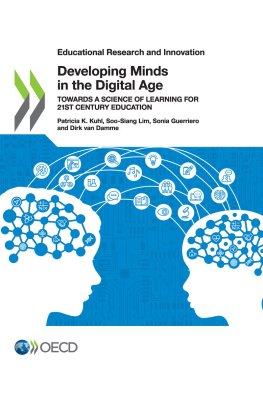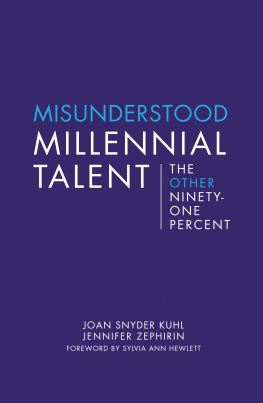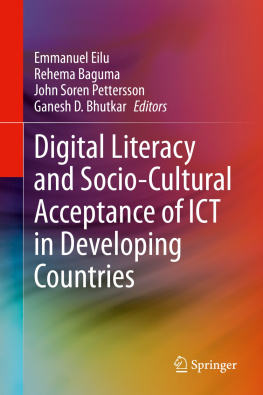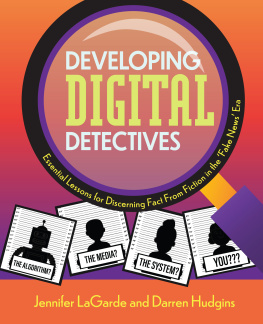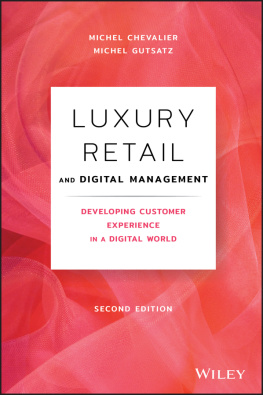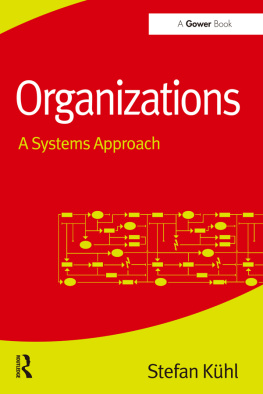Kuhl P. - Developing Minds in the Digital Age
Here you can read online Kuhl P. - Developing Minds in the Digital Age full text of the book (entire story) in english for free. Download pdf and epub, get meaning, cover and reviews about this ebook. year: 2019, publisher: OECD Publishing, genre: Children. Description of the work, (preface) as well as reviews are available. Best literature library LitArk.com created for fans of good reading and offers a wide selection of genres:
Romance novel
Science fiction
Adventure
Detective
Science
History
Home and family
Prose
Art
Politics
Computer
Non-fiction
Religion
Business
Children
Humor
Choose a favorite category and find really read worthwhile books. Enjoy immersion in the world of imagination, feel the emotions of the characters or learn something new for yourself, make an fascinating discovery.
- Book:Developing Minds in the Digital Age
- Author:
- Publisher:OECD Publishing
- Genre:
- Year:2019
- Rating:3 / 5
- Favourites:Add to favourites
- Your mark:
- 60
- 1
- 2
- 3
- 4
- 5
Developing Minds in the Digital Age: summary, description and annotation
We offer to read an annotation, description, summary or preface (depends on what the author of the book "Developing Minds in the Digital Age" wrote himself). If you haven't found the necessary information about the book — write in the comments, we will try to find it.
Kuhl P.: author's other books
Who wrote Developing Minds in the Digital Age? Find out the surname, the name of the author of the book and a list of all author's works by series.
Developing Minds in the Digital Age — read online for free the complete book (whole text) full work
Below is the text of the book, divided by pages. System saving the place of the last page read, allows you to conveniently read the book "Developing Minds in the Digital Age" online for free, without having to search again every time where you left off. Put a bookmark, and you can go to the page where you finished reading at any time.
Font size:
Interval:
Bookmark:
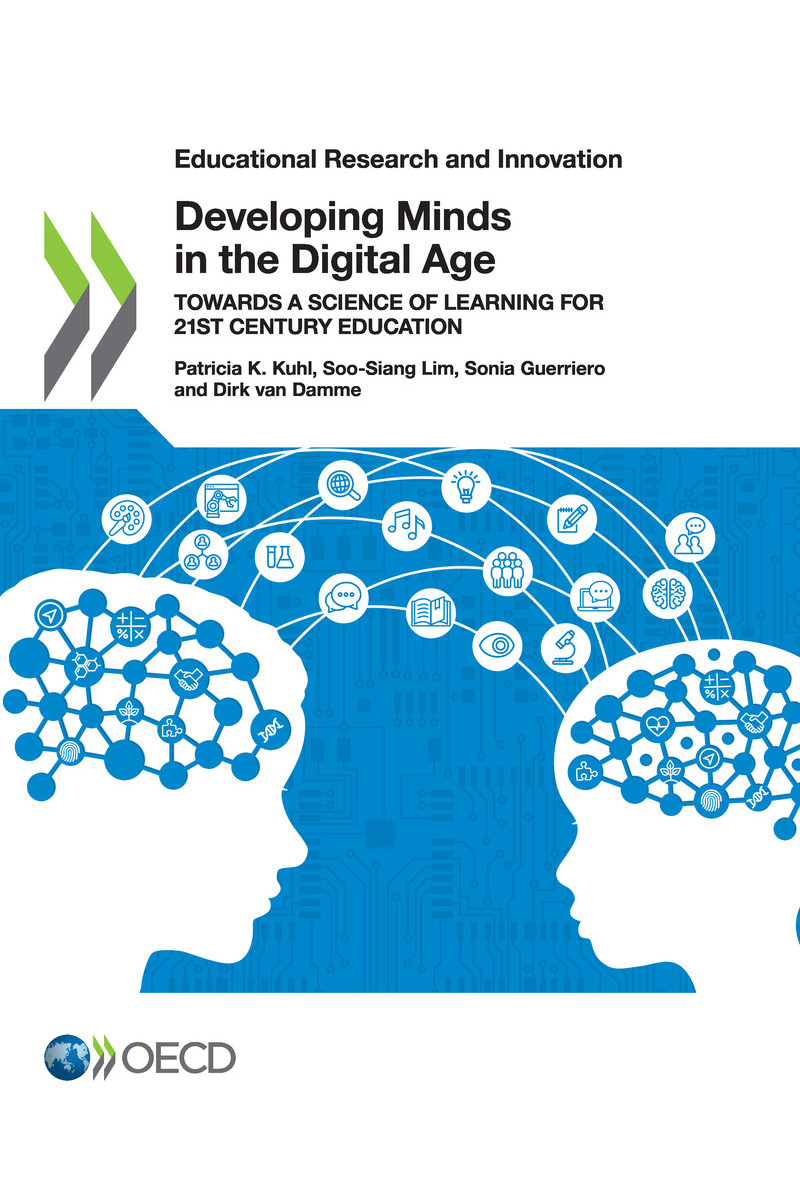
Kuhl, P. et al. (2019), Developing Minds in the Digital Age: Towards a Science of Learning for 21st Century Education , Educational Research and Innovation, OECD Publishing, Paris, https://doi.org/10.1787/562a8659-en .
In the first decades of the 21st century, many actors and stakeholders have urgently argued that education needs to be transformed in order to meet the demands of rapidly changing technologies, new skill demands in the workplace, and to foster equity, social cohesion and global citizenship. Implicit in these demands and expectations is the aim to realise every individuals potential. Twenty-first century education requires teachers, environments, technologies, educational content and pedagogical practices that can help learners attain that goal.
In order to realise this ambition, 21st-century education needs to be underpinned by the best available research evidence on human learning and how to improve it. Knowledge is one of the most important raw materials of education; yet education is not particularly good at updating its own scientific knowledge base. A lot of the knowledge at work in education practices and transmitted in teacher education and professional development activities is outdated and sometimes contradicts more recent research. Education seems to be vulnerable to myths and erroneous ideas, born out of romantic ideals, wishful thinking or love for children. Sometimes science tells us something different from what educators wish to hear.
Constantly updating its own knowledge base is one of the most needed but also most difficult tasks in moving education forward. In many countries, the mechanisms and practices used to translate and transmit scientific evidence into education policy and practice are missing. Compare this with, for example, the health sector, which has effective mechanisms for constantly updating the medical knowledge in the system and among medical professionals.
But things have started to change in recent years, most importantly in the field of scientific research itself. Human learning became the object of research in many more scientific disciplines than pedagogy or education science. Well-established disciplines, such as cognitive psychology, and social and behavioural sciences, and also neuroscience, brain research, computer science and even engineering, are amplifying efforts to better understand human learning and the conditions needed to nurture it. As an interdisciplinary effort, a new science of learning is in the making, with enormous potential for improving teaching and learning practices. These developments offer fascinating new perspectives, based on technological advances, that enable a re-examination of longstanding problems in learning, raise new questions, and offer new approaches to the study of learning.
To translate, transmit and inject the new science of learning into education will not be easy. The distance between what happens in a research lab and in a classroom is huge, and there are both institutional obstacles and barriers of mindset that need to be overcome to bridge these two worlds.
We prepared this book with that in mind. Researchers and scientists have done their best to make their research findings accessible to education policy makers and practitioners. I hope it will inspire many. This is not the end of a process though; the science of learning is only in its infancy. Thus this book is also a call for more research, and more communication and interaction between the world of science and the worlds of policy and practice.

Andreas Schleicher
This book grew out of cooperation among many individuals across disciplinary, institutional and geographical boundaries. The authors would like to acknowledge Dr Francesc Pedr, then Senior Analyst at OECD/CERI for initiating the organisation of the first Science of Learning conference at the OECD Headquarters in Paris in 2012. This led to the International Convention on Science of Learning in Shanghai (2014), a collaboration between the OECD, the US National Science Foundation, East China Normal University, Shanghai Normal University and the University of Hong Kong. The following meeting in Rio de Janeiro (2015) was supported by the International Brain Research Organization (IBRO), Instituto Ayrton Senna (Brazil) and the National Network of Science for Education (Brazil). Research and participation of US researchers at these meetings were supported by US National Science Foundation awards to the following Science of Learning Centers: Learning in Informal and Formal Environments (LIFE Center); Center of Excellence in Learning, Engineering Science and Technology (CELEST); Pittsburgh Science of Learning Center (PSLC); Temporal Dynamics of Learning Center (TDLC); Spatial Intelligence and Learning Center (SILC); and the Visual Language and Visual Learning Center (VL2 Center).
Besides the editors, various team members at different institutions have contributed to this edited volume. The editors wish to acknowledge the invaluable help of Julia Mizrahi at the University of Washington and Sarah Zaft and Sophie Limoges at the OECD.
For the specific chapters the following acknowledgements need to made:
Font size:
Interval:
Bookmark:
Similar books «Developing Minds in the Digital Age»
Look at similar books to Developing Minds in the Digital Age. We have selected literature similar in name and meaning in the hope of providing readers with more options to find new, interesting, not yet read works.
Discussion, reviews of the book Developing Minds in the Digital Age and just readers' own opinions. Leave your comments, write what you think about the work, its meaning or the main characters. Specify what exactly you liked and what you didn't like, and why you think so.

